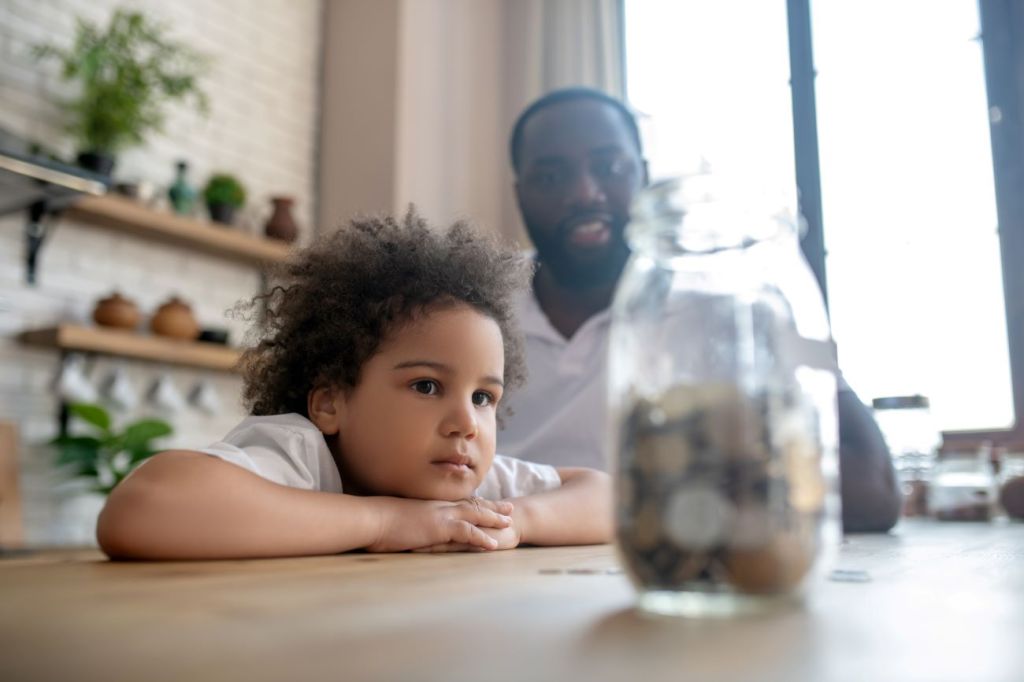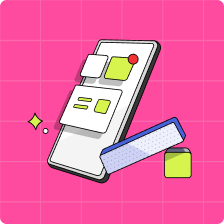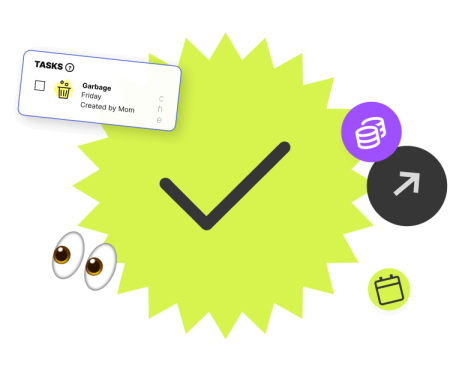Why is teaching kids good money habits important?
For some parents, that question is scarier than any inquiry about the birds and the bees. In a 2019 survey, 25 per cent of parents were either very or extremely reluctant to talk about financial topics with their kids, and another 25 per cent classified themselves as “somewhat reluctant.”
We feel squeamish talking about money for a number of reasons. We don’t want our kids to worry about money, or we think they may tell the neighbours how much we make. We feel that we don’t know enough about money or personal finance to teach our kids about it, or we’re worried we’re not good role models when it comes to spending and saving — and that our kids will find out about, or, worse, emulate our less-than-ideal money habits.
But if we want our kids to develop good money habits, parents need to get comfortable with talking to them about things like spending, saving, debt, and investing. If we don’t talk about money, we’re sending the message to our kids that money is something mysterious, shameful, or even scary. And it’s hard to form good money habits with those beliefs.
Having honest conversations about money is even more important when you consider that Canadians today are carrying record amounts of debt. In fact, according to Credit Canada, the average Canadian household debt has increased four times in 30 years: we now owe $1.78 for every dollar earned. So, we owe it to our kids (pun intended) to help them develop smart money habits and set them up for a healthy financial future.
Learn more: How Canadians teach their kids about money.

Teaching kids about good money habits starts at home
We’re not suggesting that parents have to break out tax returns and pay stubs in order to talk about household finances. In fact, telling your five-year-old how much you earn could be counterproductive; most elementary school kids won’t get the difference between $1,000 and $100,000.
Instead, start with what’s most familiar to kids: their home. Take a little tour of the house and talk about what it costs to keep it running. You can show your kids the monthly bills for electricity, water, heat, property taxes, and home insurance, and they can tally up the amounts. Discuss rent or mortgage payments and let them know how much it costs — literally — to keep a roof over their heads. You can also talk about how much you spend on groceries, gas, and insurance for the car, as well as expenses like medications and clothing. Another important lesson is talking about saving for retirement or post-secondary education.
These conversations are tangible ways to help kids learn the difference between wants and needs. When they know the real costs of living, it’s easier for kids to understand why you don’t order pizza every evening or why there’s no money in the budget to buy that $200 pair of sneakers.
And when kids have a sense of just how much cash goes to running a household every month, then how much you earn begins to make more sense. Younger kids begin to understand that it costs a certain amount of money each month to live. For teens who are contemplating their first job or starting their career and entering the workforce, information on how much you earn and how much it costs to run a household can help them make informed choices and entrench good money habits early.
Tip: Mydoh’s savings budget calculator helps kids and teens see where their money is going and how much they can save.
Talk to your kids about good and bad money habits
One of the easiest ways to teach kids how to develop good money habits is to give them an allowance, and then use it as a teaching tool.
With little kids, the classic “three jar” system works well: they can divide their weekly allowance into three containers marked “spend,” “save,” and “give.” This gets kids used to the idea that some of their cash is meant to be spent now, some saved for later, and some used to make the world a better place for others. Let your child pick the charity for their “give” jar — maybe an animal shelter if they adore dogs, or a charity to honour a loved one who’s been ill. They’ll be more excited about giving back if the cause is one they care about.
As kids get older, you can up their allowance, along with their financial responsibility. This could mean gradually making your kids responsible for more and more of their own financial decisions, like buying their own clothing beyond the basics, video games, or trips to the coffee shop. Once they’re old enough, encourage your teen to get a part-time summer job to pay for these extras and save for their future.
What if your kid spends all their money on a coveted hoodie and has nothing left to go out with friends? Instead of bailing them out, gently point out they’ve learned a valuable lesson in budgeting. The Mydoh app lets both of you track kids’ spending, while empowering them to make choices about purchases without going into overdraft. In a pinch, the app’s Lock Card feature is a good way to pause their spending while you have a money talk with your kid.
Learn more about how Mydoh’s money app for parents and kids works.

Discuss your own money habits
What if you’re carrying a credit card balance? Maybe you haven’t yet taken advantage of your employer’s matching-funds offer for your RRSP (Registered Retirement Savings Plan). Or maybe you’ve done a little too much online retail therapy.
While your initial reaction might be to feel shame, these situations are opportunities to teach your kids powerful lessons about good and bad money habits. Better still, they’re a chance to model accountability and make changes in your own financial habits.
Read more: 10 common mistakes parents made and how to avoid them.
Speaking of accountability, consider showing your kids your credit card statement. Granted, you may have to take a deep breath first, especially if your credit card debt has gotten out of hand. You and your kids can then brainstorm ways to change your spending habits and pay off the balance. For example, have your kids help you identify the “wants” versus “needs” on the bill and make a plan to stick only to the needs. Find other sources of cash, like selling unused items on Kijiji or Facebook Marketplace, to help pay down the debt. You can explore other financial options with older kids— like using a line of credit that offers lower interest rates. Make a thermometer chart to track your progress and have a celebration when the debt is gone.
Teaching kids good money habits with games
The strategies mentioned above for paying down credit cards are an example of “gamification” — using the same properties that make games so addictive and applying them to other areas of life. Like (cough) developing smarter money habits.
Games are a great way to teach kids about money and to motivate them to develop healthy money habits. Online, you can find lots of printable worksheets and money games that teach kids basic money concepts in fun ways.
3 board games to teach kids better money habits:
- Little kids might love Lemonade Shake Up!, which introduces number recognition as well as the concepts of saving and working for money.
- The Allowance Game teaches kids from first grade and up how to handle money and make change for larger bills.
- Old standbys like Monopoly and Monopoly Junior teach currency recognition, addition and subtraction, as well as debt and the opportunity costs. When you buy Park Place, you may not have enough money for Boardwalk.
The importance of encouraging financial responsibility in children
Talking about money has tangible, immediate benefits. A 2015 survey by the Organization for Economic Cooperation and Development (OECD) found that a 15-year-old who talked about money with their parents scored higher on financial literacy.
The lesson here is whatever you do, keep talking to your kids about finances. Being able to have honest conversations about our financial goals, beliefs, doubts, setbacks, and triumphs is one of the best ways to cultivate healthy behaviours and attitudes toward money.
Read more: 8 reasons why financial literacy is important.
Find out how Mydoh can help give your kids a real-world experience of earning and spending their own money today. Download Mydoh today to learn more.
This article offers general information only and is not intended as legal, financial or other professional advice. A professional advisor should be consulted regarding your specific situation. While the information presented is believed to be factual and current, its accuracy is not guaranteed and it should not be regarded as a complete analysis of the subjects discussed. All expressions of opinion reflect the judgment of the author(s) as of the date of publication and are subject to change. No endorsement of any third parties or their advice, opinions, information, products or services is expressly given or implied by Royal Bank of Canada or its affiliates.








